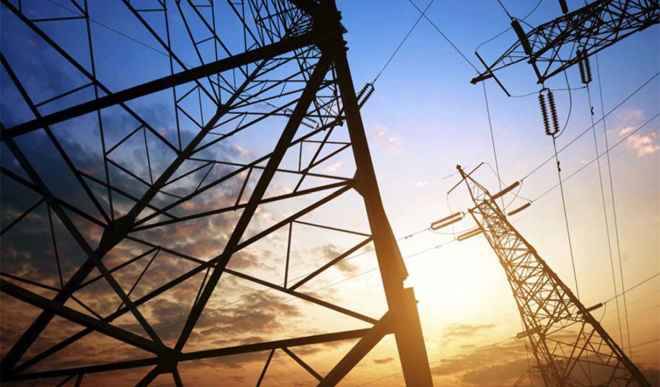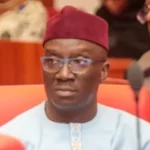In 2002, precisely June 8, as a practicing journalist, I wrote a feature, published in the Daily Trust newspaper on the crisis of power supply in Nigeria. My principal concern then was the situation of rural dwellers, and I cited some cases from villages around Abuja. While the problem until recent has been the near-absence of power supply in many urban and semi-urban areas, most of the rural areas in the country had no access to electricity at all. The effect of this over the years is that input from rural-based non-oil productive capacity was stunted, and the country was left with the risk of depending almost entirely on dwindling oil sector.
By way of example, between 1990 and 2010, power generation in Nigeria was about 3000 megawatts average – a capacity that is barely able to serve two million homes, or much less if solar-based. Unfortunately, it was within this period that over 16 billion Dollars was reportedly invested by the Federal Government in power infrastructure albeit with nothing to show for it.
While this frustrating power supply experience lasted, the coming of Buhari in 2015 got my interest renewed with particular attention on what was going to happen in the rural electrification in the country. Reason being that I am aware of what the country stands to gain by facilitating rural productivity through electrification. I had no way of advising the government, but I noticed a desired departure from the old tradition of spending colossal money to keep Nigerians in perpetual darkness when President Buhari established Rural Electrification Agency – REA.
Arising from an appalling state of power supply infrastructure in the rural areas where over sixty per cent (60%) of Nigerians reside, the REA was mandated to catalyse the off-grid market to increase electricity access to rural and underserved communities through public and private sector engagement and participation.
The mission of REA therefore was to provide access to reliable electric power supply for rural dwellers irrespective of where they live and what they do, in a way that would allow a reasonable return on investment through appropriate tariff that is economically responsive and supportive of the average rural customer.
The REA operates through four core activities: annual appropriation budget for capital projects which is executed on a contract basis; the rural electrification fund that provides capital subsidies and technical assistance to projects; Special projects such as the energizing economies initiative and energizing education programme, and the World Bank-backed, Nigerian electrification programme.
Of the four cardinal activities of the REA, the Rural Electrification Fund (REF), where Dr. Sanusi Ohiare has so far distinguished himself as the Executive Director, has demonstrated uncommon verve in expanding power supply to many underserved communities in Nigeria. Aside from the immediate steps the young man took in galvanizing stakeholders such as the World Bank, African Development Bank, German International Development Agency GIZ, DFID and others into action, he commenced the Grant Award Process for its First Call for Proposals – for the deployment of Solar Mini-grids and Stand-Alone Systems amounting to 890kW and 19,000 stand-alone systems to electrify about 25,000 households. This call saw a total grant of 1.9 Billion Naira being disbursed to qualified local companies on a public-private-partnership (PPP) basis, to deploy 12 mini-grids and 19,130 Solar Home Systems to rural Nigerians.
In an country that has been rendered to political dissuasion of hardworking people, I believe that any Nigerian who has distinguished himself or herself through integrity and hardwork should be so recognized and commended. This has become even more necessary for encouraging young people to bring out the best in them to build our country. Mrs Damilola Ogunbiyi – the Managing Director of REA and Dr Sanusi Ohiare, the REF Executive Director have worked assiduously with other members of the REA management to attract $550 million from World Bank and African Development Bank for various projects and programmes aimed at providing electricity to 37 Federal Universities and 7 teaching hospitals; several major markets across the country; hundreds of mini-grids and one million Solar Home Systems.
As an ardent observer of power sector development, I can tell that the Buhari administration has, through REA, demonstrated genuine commitment to promoting equity in the allocation of government resources across the six geopolitical zones in Nigeria to subsidize rural electrification projects. Pilot projects have already been installed and deployed to connect 13,600 shops in Sabon Gari market in Kano; 32,000 shops in Ariaria market, Abia state and 1,047 shops in Sura market in Lagos and 13 other markets spread across the six geopolitical zones in the phase 1 of the project.
Given these achievements and the going efforts towards expanding access to electricity in rural areas, I strongly believe that input from the primary sector, especially agriculture and mining will see significant improvement that might compete closely with the oil revenue in the near future. It is my opinion therefore that the Rural Electrification Agency, particularly the Rural Electrification Fund should be accorded due legislative and executive support while Mrs Damilola Ogunbiyi and Dr Sanusi Ohiare, should be commended and encouraged as we proceed to the next level.
Ozohu-Suleiman wrote in from Ahmadu Bello University, Zaria.

 Join Daily Trust WhatsApp Community For Quick Access To News and Happenings Around You.
Join Daily Trust WhatsApp Community For Quick Access To News and Happenings Around You.


